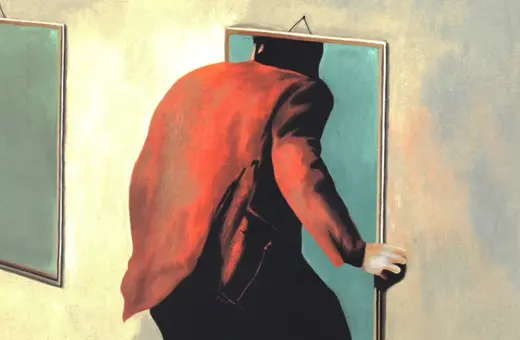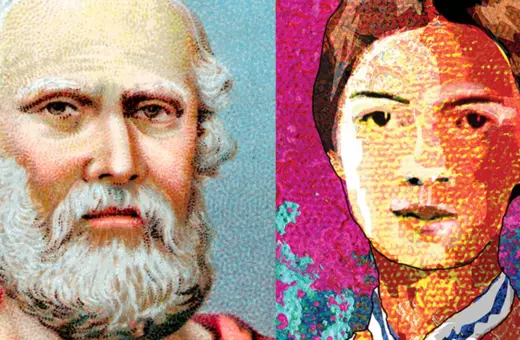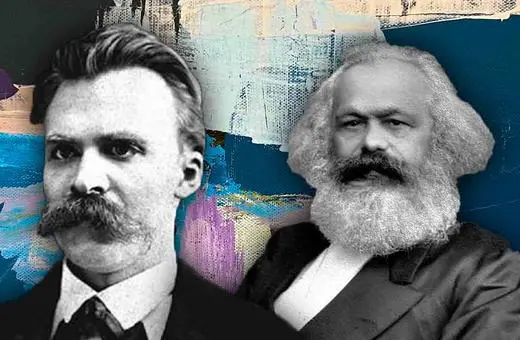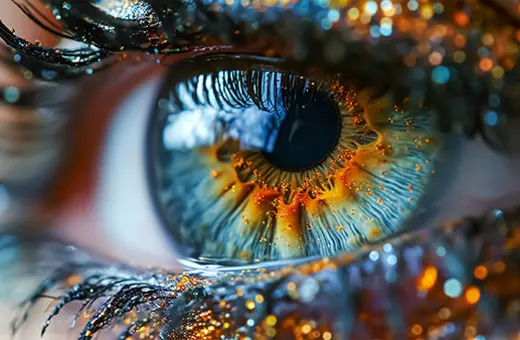Our most-loved artists create alien spaces which help them reframe reality. This alienation resulting from the artist being silenced by existing societal norms defines their creativity and opens up new possibilities beyond the normal, as Professor Rodney Sharkey argues using the examples of David Bowie and Samuel Beckett.
Both Samuel Beckett and David Bowie's creative processes are defined by the effects of alienation, as both felt silenced by normative modes or representation. To express themselves fully, Beckett and Bowie created alternative or alien spaces which helped them reframe their own realities. In doing so, they were able to transgress hitherto normative social values and incite progress in the political and cultural orders of their present day lives. Furthermore, and for contemporary readers and listeners, they leave behind a similarly alien aesthetic; one through which alienated people can see each other beyond the social codes that determine the normal parameters of the current hegemony, while also opening up new alien spaces of potential communion and collective action. Consequently, their aesthetics of alienation create a state of uncertainty for the marginalised other that nonetheless can be used to open up new narratives and new ways of being, individually and collectively.
In order to achieve his status as quite the radical modernist, Samuel Beckett had to first break from the archly conservative and pervasive habitus of Irish literary and polite society. He knew that the Celtic mysticism which characterized Irish literature was not for him. Neither was the Irish playwright a fan of the Anglo-Irish ascendancy culture into which he was born. Indeed, as a consequence of his aversion to both mythological Irish blarney and genteel Anglo-Irish society, Seán Kennedy argues that we should think of the Beckett vagrant as engaging in a state of counter-cultural alienation.
___
Throughout the Beckett universe, characters are most at home when thoroughly alienated from the normative demands of their environment
___
By way of illustration of such counter-conduct, Kennedy offers one Beckett character with a predilection for poking cowpats and another who withdraws into his lodgings to escape social communion altogether. Likewise, the narrator of “The End” is forced to flee the meddling of priests and police who attempt to exercise ostensibly benevolent community interventions that nonetheless demarcate the new Irish free state’s emerging discourses of discipline and control.
More broadly, and throughout the Beckett universe, characters are most at home when thoroughly alienated from the normative demands of their environment. In this regard, Thomas Porter has proposed that “Beckett is an “ausländer”, the German word for an alien who has disassociated from their own heritage without adapting any other. In Kennedy and Porter’s formulations, “alien” is at once disruptive insider, marginalized outsider and de-territorialised “other,” a figure representing multiple subaltern identities incompatible with polite or other forms of habitual society.
___
They draw attention to the short-comings of the contemporary cultural moment and present alternative worlds beyond the normal
___
Unbeknownst to Beckett at the time, the biopolitics of the Irish free state would eventually be reflected in the emerging, disciplinary architectures of western neoliberalism, his police and priests replaced by the disciplining function of digital surveillance and the aspirational discourses of wellness and resilience. Ironically, the middle classes continue to demonstrate their capacity to adhere to a now failing capitalism by still internalising its ever-evolving behavioural imperatives.






















Join the conversation